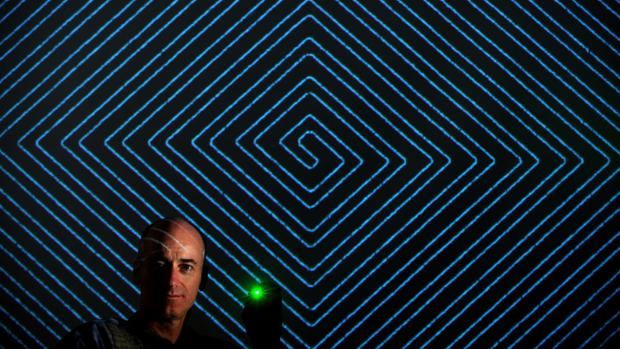
Breaking News
 The U.S. Just Launched a Secret Dollar Empire (And Nobody Noticed)
The U.S. Just Launched a Secret Dollar Empire (And Nobody Noticed)
 ICE Uses a Growing Web of AI Services to Power Its Immigration Enforcement and Surveillance
ICE Uses a Growing Web of AI Services to Power Its Immigration Enforcement and Surveillance
 The Dollar Is Facing an End to Its Dominance
The Dollar Is Facing an End to Its Dominance
Top Tech News
 EngineAI T800: Born to Disrupt! #EngineAI #robotics #newtechnology #newproduct
EngineAI T800: Born to Disrupt! #EngineAI #robotics #newtechnology #newproduct
 This Silicon Anode Breakthrough Could Mark A Turning Point For EV Batteries [Update]
This Silicon Anode Breakthrough Could Mark A Turning Point For EV Batteries [Update]
 Travel gadget promises to dry and iron your clothes – totally hands-free
Travel gadget promises to dry and iron your clothes – totally hands-free
 Perfect Aircrete, Kitchen Ingredients.
Perfect Aircrete, Kitchen Ingredients.
 Futuristic pixel-raising display lets you feel what's onscreen
Futuristic pixel-raising display lets you feel what's onscreen
 Cutting-Edge Facility Generates Pure Water and Hydrogen Fuel from Seawater for Mere Pennies
Cutting-Edge Facility Generates Pure Water and Hydrogen Fuel from Seawater for Mere Pennies
 This tiny dev board is packed with features for ambitious makers
This tiny dev board is packed with features for ambitious makers
 Scientists Discover Gel to Regrow Tooth Enamel
Scientists Discover Gel to Regrow Tooth Enamel
 Vitamin C and Dandelion Root Killing Cancer Cells -- as Former CDC Director Calls for COVID-19...
Vitamin C and Dandelion Root Killing Cancer Cells -- as Former CDC Director Calls for COVID-19...
 Galactic Brain: US firm plans space-based data centers, power grid to challenge China
Galactic Brain: US firm plans space-based data centers, power grid to challenge China
Nanowire battery electrode powers through hundreds of thousands of charge cycles

By designing a nanowire-based electrode with a special protective coating, researchers now claim to have overcome this limitation, which could lead to batteries able to withstand hundreds of thousands of recharge cycles.
Recently, scientists have made some promising strides when it comes to enhancing the properties of nanowires for the purpose of building better batteries. In 2012, Stanford researchers tweaked the recipe a little to give nanowires a greater surface area, as did researchers at MIT in 2013. Also in 2013, scientists had some success using silicon nanowires to build a lithium-ion battery that held three times the energy of a conventional version, thought it could only withstand around 200 recharge cycles.
With their new nanowire-based electrode, researchers at University of California, Irvine aren't yet claiming increased battery capacity, but a material with a much greater lifespan. Early testing of the component has shown that it can withstand hundreds of thousands of cycles, compared to current versions which they say usually die after around 7,000 cycles at most.

 The Lifespan of a Country
The Lifespan of a Country

